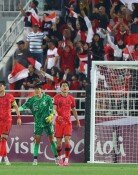[Opinion] Internet Party Members
The party is rapidly losing the freshness, honesty, and dynamism needed for a reform party and is following the steps of fossilized existing parties. (Uri Party) You should not rest as comfortably as the big party. If you do so, the people will once again be disappointed. (Grand National Party)
These are the writings of Internet party members, which were posted on homepages of each respective party on July 13. With the importance of the Internet growing in the political field, the voice of Internet party members is also growing louder. In other words, they are actively expressing their political views on the policies or direction of the party.
There are basically two ways to enter a party. The first is to directly go to the headquarters of the party and apply for membership, and the second is to use the Internet. In the latter case, most of them become Internet party members. Their main space of activity is the Internet. Communication and unity as a party member are achieved through the Internet. Sometimes they participate in party member conferences and also in demonstrations based on close relations developed online. They are also very positive in paying party fees.
In case of the Uri Party, it has almost 65,000 Internet party members. It is said that nowadays, hundreds of Internet writings are posted everyday. Some inner members of the Uri Party worry that the Internet members have become like lords of the Uri Party leadership, hence controlling the party. The Internet party members have taken the initiative on recent issues such as demanding the surrender of Uri Party members who voted against the arrest of GNP member, Park Chang-dal, or criticizing that the party has taken a step back on reform by refusing to enact laws disclosing the building costs of apartments. Over 60 percent of the votes for the election of the DLP (Democratic Labor Party)s representative came from the Internet. The GNP is also endeavoring to win the hearts of netizens. When electing the new party representative on July 19, online votes will account to 20 percent of the total votes.
It is quite clear that Internet party members will increase for all parties and that their influence will continuously increase. Nevertheless, as the nature of the Internet, there are also some side effects. Even now, there are curses, false accusations, distortion of facts, and libel among other problems. These Internet party members cannot represent all party members or the Korean people, but they can become bad boys who varnish the truth and restrict information. Hence, it is the homework of every party to overcome the limitations of Internet politics and develop them into the establishment of an effective political system.
Editorialist Song Young-eon youngeon@donga.com







